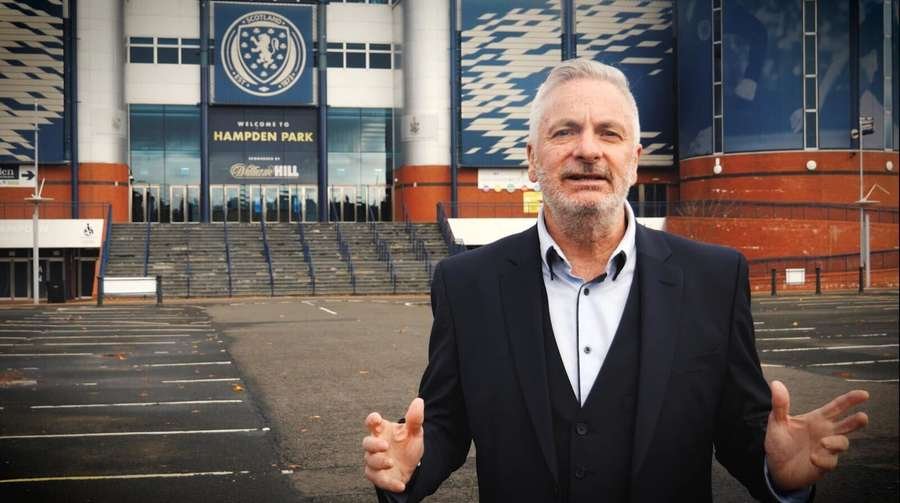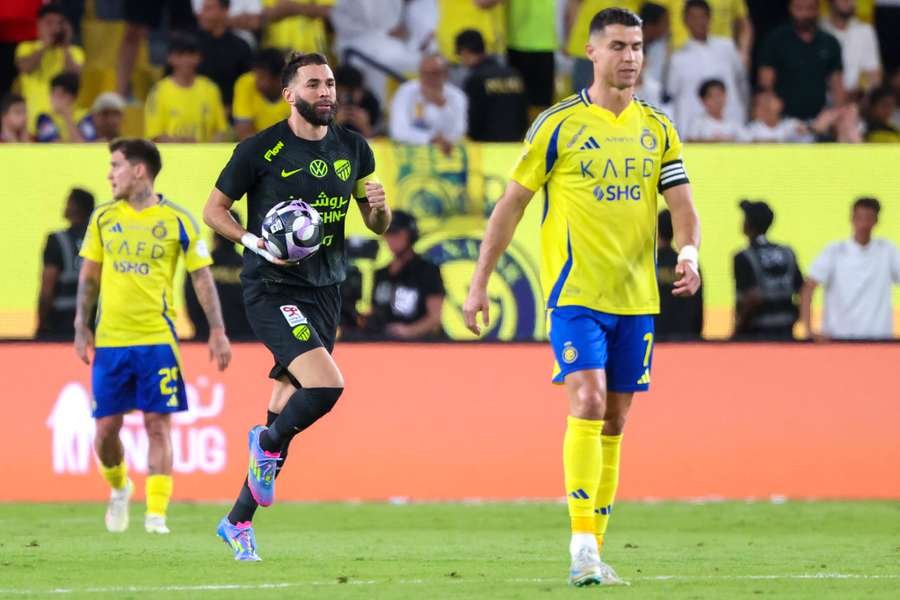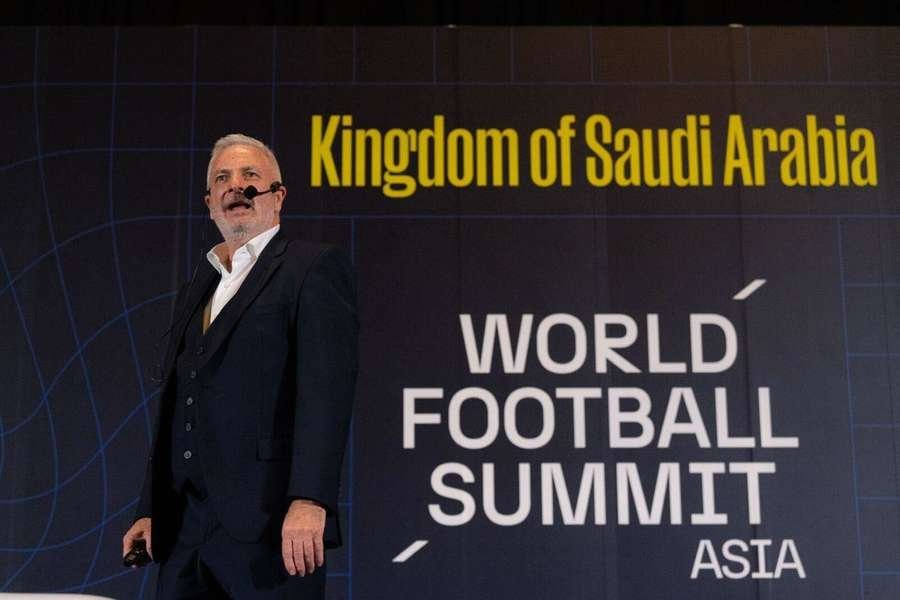Veteran agent John Viola is well-acquainted with the intricacies of football finance, having dedicated nearly three decades to orchestrating high-profile transfers to and from some of the globe’s most prestigious clubs.
In addition to his work with 451 Football Consultancy, John also founded the JV Academy, with the aim of nurturing the next wave of football agents as they navigate an increasingly cutthroat market.
A significant aspect of this mission is the focus on developing markets, an area where John has ample experience. Currently, few markets are as dynamic as the affluent Gulf state of Saudi Arabia, a region that has transformed from a financial outlier to a nation aspiring to establish itself as a serious competitor in global football.
Since Cristiano Ronaldo’s transfer to Al Nassr in December 2022, a slew of football’s top talents have migrated to the Middle East. This list includes seasoned stars like CR7, Karim Benzema, and N’Golo Kante, alongside young players still deemed to be in their prime, such as Ruben Neves and Ivan Toney—all earning astounding salaries beyond the reach of many of Europe’s elite clubs.
Read more: John Viola aims to shape the future of football agents
While this trend is not unprecedented (the USA and China have previously employed similar growth strategies), it raises an essential question: Does the financial magnetism pulling these players away from traditional, competitive leagues present a challenge for the world’s most cherished sport?

“I think it’s a good thing, because if your club suddenly lands £25 million for a player who might have only been valued at five, it opens up avenues to invest in younger talent.
“It won’t fundamentally alter the Premier League if a few players depart, and I think other nations deserve the chance to develop their leagues, don’t you think?
“If they’ve got the funds, why shouldn’t Saudi Arabia be afforded the opportunity to grow? It’s not solely about France, Germany, Spain, England, and Italy. Why can’t other nations aspire to join the top leagues?”
‘Footballers are entertainers’
However, what precedent does it set when an exciting player in their prime opts for a lucrative deal in Saudi Arabia over joining renowned clubs like Manchester City, Liverpool, or Real Madrid, where the opportunities to challenge for top-tier European trophies and build a lasting legacy are assured?
“Footballers are people too, and their careers are short-lived. It’s hard to reproach a player for taking a high-paying contract, as they need to maximise their earnings while they can,” John explains.
“None of them know what lies ahead, and many lack the skills necessary for what comes next.
“They must capitalise on their earning potential during their active years.
“I’ll also add—though you likely won’t hear this from many agents—that I don’t believe any player is worth £200,000 a week. But how often do we hear complaints about Rod Stewart charging that much for a performance?
“These players are entertainers, and the demand for them is enormous. There are 60,000 people eager to watch a match at Tottenham, and 63,000 at Parkhead in Glasgow, all keen to see what unfolds and discuss their lives.
“They’ve become akin to movie stars and top musicians. So, do I think any player is worth £200,000 or £500,000 per week? I don’t, but that’s the nature of their industry, and no one’s turning down those opportunities.”
Sportswashing or genuine progress?
Saudi Arabia has refuted claims that its expanding footprint in international sport is a form of ‘sportswashing’—a term denoting the use of sports to improve a country or organisation’s global standing and distract from negative press.
Authorities assert that their investments are part of a broader initiative to modernise the country and decrease its economic reliance on oil by developing industries like sport and entertainment.

Nevertheless, this approach has attracted considerable criticism. Detractors argue that the kingdom is leveraging sport as a smokescreen to divert attention from its human rights violations, including restrictions on freedom of speech, the persecution of dissidents, and the limited rights of women and minority groups.
Contentious political matters, such as the assassination of journalist Jamal Khashoggi, involvement in the conflict in Yemen, and the application of the death penalty, further exacerbate allegations of using sport for agenda management.
Despite these issues, Saudi Arabia continues to make strides in the global sports arena. The nation hosted FIFA’s 2023 Club World Cup, secured a major sponsorship deal with FIFA via its state-run oil company, Aramco, and is poised to host the 2034 World Cup.
Will the nation truly surmount its numerous challenges and forge a competitive football league?
“I’m willing to stick my neck out and say yes, I believe they can achieve that,” John asserts.

“China invested significantly in football a few years back but didn’t invest as heavily in infrastructure. In contrast, when you look at Saudi Arabia, you can see the massive investments in infrastructure. They’re constructing cities.
“They’re pouring trillions into grassroots football. They’re recruiting top-level coaches, nutritionists, and medical staff and compensating them well. They’re building from the ground up, but understandably, the spotlight is on the high-profile names.”
‘They’ll be contenders’
“I served on a government committee last year and gained a wealth of knowledge about Saudi Arabia’s initiatives.
“Their focus is on establishing academies across the nation, detailing their investments, constructing facilities, and attracting talent. From what I’ve seen, in a few years’ time, they’re set to succeed.
“But if you peek behind the scenes, you’ll find another 92 players signed at various levels, with a focus on youth development.
“For example, I’m currently on the lookout for six players for a Saudi club, and they’re not targeting anyone over 28. They’re focused on developing young players for profit, shifting many clubs from government-backed to business-oriented models.
“My first deal there was two decades ago—bringing two international Venezuelan players to Saudi Arabia, a scenario you’d struggle to believe today. It feels like the setup for a joke.
“Reflecting on that and the current landscape, it’s evident just how much has changed.
“In the coming years, they will be competing among the top five leagues in the world.”
For more information on the JV Academy and 451 Football Consultancy, click the links.
Compiled by SportArena.com.au.
Fanpage: SportArena.com.au.
LiveScore – Live Sports Results & Odds.




